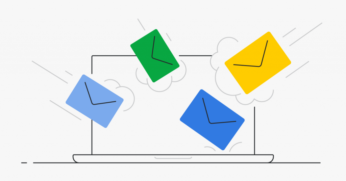If you are stepping into the field of digital marketing as an entrepreneur to grow your business then know that it is a great field that can increase your brand awareness but there are some enormous challenges and obstacles for people who are new to this field. Digital marketing is becoming popular with every passing day as its results are better than traditional advertising and it is cost-effective. Plus, the increased penetration of the internet has further helped in the growing popularity of digital marketing.
But there are a lot of challenges for beginners in the field of digital marketing that we are going to discuss shortly. Those entrepreneurs who are new to the field of digital marketing aren’t able to get promising results and their startups fail to do much in digital marketing but worry not. You just need to be careful in this field, keep your ground in front of the challenges that await your way and you will be able to succeed in digital marketing campaigns. So, here are the common challenges that entrepreneurs faced in digital marketing as a beginner:
Insignificant Knowledge About Digital Marketing
Most entrepreneurs and startups don’t have enough knowledge about the field of digital marketing due to which they struggle and mess everything up. It is a common problem, not in the field of digital marketing but in any other field. If you don’t have significant knowledge about a field and you jump right into it then you are going to make things even worse.
To be able to come up with promising results in the field of digital marketing, you should learn more about this vast field, gather some knowledge, and stay updated with the latest digital marketing tools and trends that are being used in this field before you actually jump into this field.
Low Budget
Budget and Capital, are the two things that play a significant role in any business category. Without a budget, no campaign or business can run. In the field of digital marketing, you must have a budget for your marketing campaigns that will help you reach your estimated target. Sometimes, it may be required to boost your content which also requires a budget. So, you have a budget pre-planned for digital marketing or else you will struggle.
Fail To Draw The Attention Of The Targeted Audience
People who don’t have knowledge about the field of digital marketing aren’t able to draw the attention of their targeted audience. To succeed in generating leads, it is important to draw the attention of the targeted audience to your products/services. It is beneficial for your business as it increases its popularity and you also get the attention of the audience that you were targeting.
Based on the products and services that your startup provides, you should have a rough understanding of the interest of your potential audience. Therefore, you should understand the interests of your audience and provide them with content that will catch their attention and will help generate leads. For instance, if you have a startup program similar to Omegle then targeting those people who wish to meet new people would be the ideal choice with content that they wish to see.
Ignore ROI
Another challenge or mistake you can say that startup owners make is that they ignore the ROI or Return On Investment. They start a marketing campaign and don’t even measure the progress of their campaign and whether it is generating results or not. Determining the ROI is helpful to measure how good your investment is turning out to be or not. If the ROI is good then it shows that you are going with a good strategy but if ROI is bad then you need to change your marketing strategies.
Unfortunately, people who are new to this field ignore the ROI due to which they are unable to predict the appropriate return on their investment and don’t make any changes to their marketing strategies. You wouldn’t see startups like Chatroulette making such a mistake.
Read more: What Challenges Do Entrepreneurs Face In Digital Marketing?









